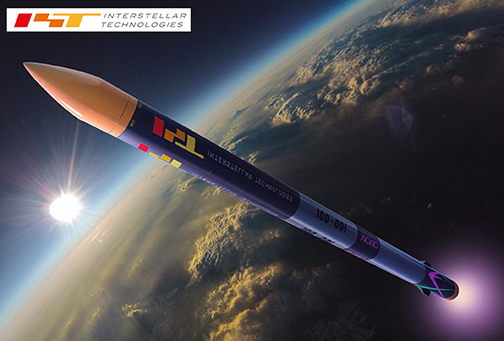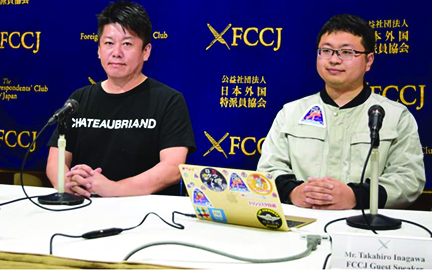
Journalist Masumi Koizumi at Japan Times is reporting that days after the first successful launch of his privately built rocket, entrepreneur Takafumi Horie said his aerospace startup Interstellar Technologies Inc. may soon catch up with industry leaders such as SpaceX in the commercial space rocket-launching business.

Horie also said the company will be ready to launch another rocket, Zero, which is capable of placing satellites into orbit, “in two to three years.” He noted the company already possesses the prerequisite control system and other technological capabilities essential to rocket development.
“I assume that if we achieve the launch, we could stand on the same starting line as them from a technological perspective,” said Horie, a company founder, during a news conference at the Foreign Correspondents’ Club of Japan in Tokyo.
On May 4, Interstellar Technologies sent the country’s first privately developed rocket, named Momo-3, into space after two failed attempts.
Horie said the successful launch has broken down the “cost barrier” to domestic space development. That could provide added impetus for private companies in the space sector, a field dominated by the Japan Aerospace Exploration Agency, a government organization.
He said that government-led development has channeled funds into projects involving the newest and top-of-the-line technologies. This tendency has resulted in the creation of expensive rockets, which he called “unnecessary” for the missions they are being tasked to perform.

Takafumi Horie (left), founder of rocket startup Interstellar Technologies Inc., and CEO Takahiro Inagawa give a news conference at the Foreign Correspondents' Club of Japan in Tokyo.
Photo is courtesy of Masumi Koizumi.
“The benefit of private rockets is they are cheap and feature minimum performance (capabilities),” he said.
The global competition to develop small rockets is heating up as demand for microsatellite launches grows. Interstellar Technologies wants to break into that market, where U.S. firms are leading the race. U.S. startup Rocket Lab completed a commercial launch in 2018, for instance.
The first Zero launch is scheduled between the end of 2022 and 2023. Interstellar Technologies pursues low-cost launches. Currently, the minimum cost of launching satellites is several billion yen. The company plans to limit the Zero launch cost to around ¥500 million, according to CEO Takahiro Inagawa. As for plans beyond Zero, Inagawa said the company will develop a larger launch vehicle for deeper space exploration, including trips to the moon and Mars — to be followed by interstellar exploration.
Hokkaido-based Interstellar Technologies was founded by Horie, the former Livedoor Co. president, and other investors in 2013.

Journalist
Masumi Koizumi.
In the May 4 liftoff, the unmanned Momo-3, which measured roughly 10 meters in length, 50 centimeters in diameter and weighed 1 ton, reached an altitude of 113.4 kilometers from a launch site in the town of Taiki in Hokkaido, before dropping into the Pacific Ocean. Its original launch date had been April 30 but it was postponed due to a problem with the fuel system.
The first two launches of the Momo series models in 2017 and 2018 ended in failure.
Inagawa expressed hope that by improving the infrastructure for rockets, more domestic players would enter the space industry and help nurture its growth.

